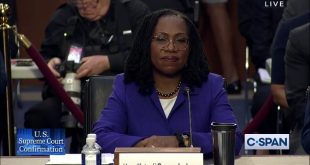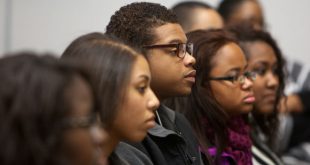 In 1831, Alexis de Tocqueville, the famous French historian, came to America to study our nation. Europeans and others were fascinated with the success of the fledgling nation, then barely 50 years old and already competing on the world stage.
In 1831, Alexis de Tocqueville, the famous French historian, came to America to study our nation. Europeans and others were fascinated with the success of the fledgling nation, then barely 50 years old and already competing on the world stage.
Such a thing had never before occurred, and Tocqueville was determined to discover the secret. He was duly impressed by our governmental structure, including the separation of powers, but he was in awe of the public educational system, which rendered its recipients completely literate by the completion of second grade. This depth of education was generally only found among the aristocracy in Europe.
Let’s put aside the diversionary arguments about lack of educational access for all, which was a huge mistake, and concentrate on the tremendous advantage afforded our predecessors by education. Early settlers not only mastered reading, writing and arithmetic, but also shared practical skills, all of which enabled them to traverse and tame a rugged and frequently hostile terrain from sea to shining sea.
As isolated communities sprang up throughout the nation, they were able to thrive through innovation, industry and compassion. The “can-do” attitude involved hard labor, but it also included a sense of responsibility for those who through injury or other hardships could no longer care for themselves. The spirit of caring, although diminished, remains an important part of who we are today.
Tocqueville was impressed by the fiery sermons that emphasized the word of God and not the social mores of the day. He concluded his American analysis by saying, “America is great because she is good. If America ever ceases to be good, she will cease to be great.” America was different because we openly acknowledged the role of God in our lives.
Some will say, “Carson is a religious fanatic because he believes in God and the Bible.” Interestingly, the very same people are quick to invoke the name of God and recommend prayer at times of national and personal tragedy. Hypocrisy is their frequent companion.
Some will say America can never make claims of “goodness” owing to her history of slavery. Although it was by far the worst atrocity in our history, we paid a horrendous price in lives lost or destroyed in a Civil War that all but incapacitated a young nation. The guilt, shame and humility that resulted from this dark American episode will teach us and stigmatize us well into the future.
Learning from mistakes is a sign of wisdom and goodness.
What is disturbing in the pursuit of goodness is the turning of a blind eye toward corruption, much like the Romans did before the fall of their empire. Episodes such as the Internal Revenue Service scandal should alarm all Americans, regardless of political affiliation. The fact that one party has characterized it as a “phony scandal” tells you a great deal about the loss of honesty in our society.
The fact that one party is willing to use its majority status to cram a health care bill down the throats of the minority party and the American people and then refuses to acknowledge the obvious illegitimacy of a bill passed largely on the basis of false information provides a barometer on the lack of importance placed on virtue in our society today. How can such a society in any way claim to be good?
How can a society that kills millions of innocent unborn babies and then labels anyone opposing the practice “anti-woman” claim even a modicum of goodness? How can a nation that uses its news media to subtly trash traditional families, promote a drug-filled lifestyle and ridicule faith in God claim the mantle of righteousness?
I could go on pointing out how far we have strayed from our Judeo-Christian roots. For some, such a departure cannot come soon or dramatically enough. However, I believe the majority of Americans understand that we are different from everyone else, and that difference had a great deal to do with our rapid rise to the pinnacle of world power and wealth.
As we depart from our former values of decency, honesty, compassion and fairness, our status as a blessed nation will also be diminished.
Our decline is not necessary if we can learn from the mistakes of others and reclaim the values upon which our nation was built. I am not advocating for a national religion, but I do think we should seriously consider the words of John Adams, who said, “Our Constitution was made only for a moral and religious people. It is wholly inadequate for the government of any other.”
America can be great, but it requires real courage and conviction to resist the urge to be “cool.” None of this means we should impose Judeo-Christian values on those who wish to adopt a different kind of lifestyle, but it does mean we should not allow an alternative lifestyle to be imposed upon us.
Fairness is a two-way street, and so is tolerance. If the majority refuses to fight for its rights, while a vocal minority uses a compliant media to try to fundamentally change America, we will have only ourselves to blame.
 Ben S. Carson is professor emeritus of neurosurgery at Johns Hopkins University.
Ben S. Carson is professor emeritus of neurosurgery at Johns Hopkins University.
 Black Community News News and Commentary for Christians
Black Community News News and Commentary for Christians



